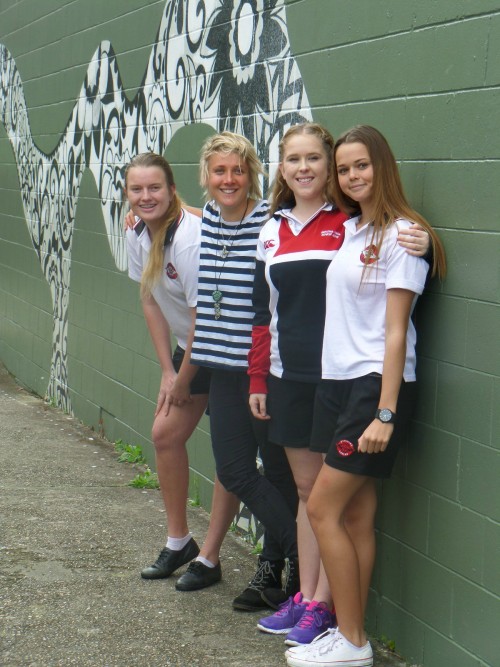“She’s 22, a CEO, and making kids think about the only thing that really matters.
Nicole Gibson, the founder of The Rogue & Rouge Foundation and the youngest National Mental Health Commissioner to ever be appointed in the Commonwealth, is proof that millennials are so much more than the stereotypes.
Gold Coast-based Gibson launched her social enterprise at just 18 years old in hopes of breaking down the stigma surrounding mental health. Her proactive approach to mental health has since helped her cut through over 300 communities and reach 200,000 people across Australia. Two years earlier, Gibson was in an acting academy aspiring for Hollywood stardom, before spiralling into severe anxiety, depression and anorexia nervosa.
“This obsession with success and competitiveness was one of the things that impacted me my entire life and it wasn’t until last year that I actually started to recognise this,” says Gibson. “I didn’t even have a personal definition of success – that was the problem – I had just bought into this idea of what society told me success was.”
Gibson says it took a shock to her system for something to switch inside of her, which came in the form of hospitalisation for anorexia nervosa. On her journey to recovery, she found herself constantly mulling over the state of Australia’s mental health system, where $600 million is spent every year on absenteeism directly correlated with these issues.
What’s more, seven people commit suicide in our country every day.L to R Ashleigh Furnell Nicole Gibson Shannon Love Katie Amos3
“I had 36c in my bank account and called up my best friend and said I was going to tour Australia and visit the most strained communities because I wanted to know the truth about what was really going on – she naturally thought I was crazy. “But the more money spent on mental health correlates to rising incidences so it’s pretty clear what’s been done in the past isn’t working.”
On a shoestring budget, Gibson estimated she would need $75,000 to bring her vision to life. She was fortunate to have a working relationship with SunSuper, who had featured her in their Champions of Change campaign the year before – but that still didn’t make for a shoe-in. “They said no, I persisted, and they eventually scheduled me in for coffee with their marketing intern,” Gibson says. “I was pitching for a speaking tour around Australia and I wasn’t a public speaker or expert facilitator by any means. I didn’t even have a car.
“I walked away with a verbal agreement for funding. It felt like the ultimate score of the underdog.” Gibson found mental health challenges to be epidemic among young people across Australia. The same sentiment prevailed, whether she was visiting an Indigenous community in the Kimberly region, or an esteemed private school in Melbourne.
Some of the schools in remote communities had only 20 per cent attendance rates. “I recognised how much of a problem Tall Poppy Syndrome is in Australia – the kids weren’t feeling connected to each other and didn’t know how to talk about dreams and purpose,” says Gibson.
“I spoke to the school bullies, asked why they did it, and they consistently said because it made them feel powerful and the person they victimise then feared them. “It sounds soppy, but truly the only way to transmute fear is through love. In rough and rural towns where intimacy and vulnerability just aren’t things, we implemented a policy where kids would just hug the bully.
“It’s not about plugging mental health as an issue, but working out how to inject love into a society that feels pressure to be a certain way. We get phone calls saying there’s next to no bullying at these schools anymore because of this hugging trend.” Gibson continues to roll out programs across Australia, most recently a program in partnership with fellow Gold Coast social enterprise, Startup Apprentice. They are focused on equipping kids with business smarts to give a sense of direction and purpose.
The local social enterprises are teaming up for an eight-week and one-day program, Startup Apprentice Express, an experience-based learning session that ‘bridges a gap between book-smarts and street-smarts’ where students come out with a digital business or social enterprise ready for a panel of judges.
“It’s so crucial that young people are exposed to different styles of learning, and encouraged to look at both their values and belief systems to give them solid foundations to thrive in and beyond high school,” she says.
“If you look up success in the dictionary, it will likely say ‘a lack of failure’ – the most subjective definition of success ever. The definition for failure isn’t helpful either – ‘an unsuccessful person or thing’.
“We want kids to realise there’s no tangible definition of success or failure to get caught up in. It’s up to all of us to make up our own definitions.””






